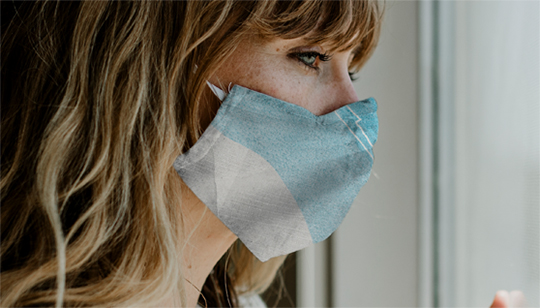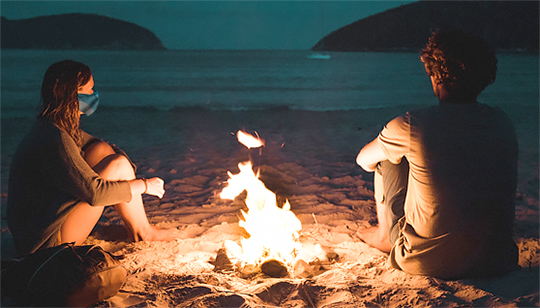Social Distance Over Social Isolation
How to find balance between safety and social.
Everyone experiences loneliness and social isolation. Usually the feeling is temporary. In March of 2020, it all changed.

Photo by Manuel Meurisse on Unsplash
Our Perception of Distance
The term “social distancing” was provided to us as a means of protection from Covid-19, aka “Coronavirus”. For our protection, the CDC instructed us to stay at least 6 feet apart from others so we didn’t become ill. But how did we interpret this? Did we truly just stay 6 feet away? Some people did and some people did not. Many of us stopped spending time with others. We stopped our typical errand routines. We stayed in our homes. We even washed our groceries! It was a difficult time as we became socially isolated. While we effectively reduced the spread of Coronavirus at the time, it clearly has had an impact on our general well-being and mental health.
The recent news of a vaccine coming in 2021 has also adjusted our perception. Some people are choosing a full return to “normal-life”. Others are deciding to isolate completely until it is “all over”.
Research on Social Isolation
Research has shown that social isolation has a significant impact on both our mental and physical health. According to a study by the National Academies of Sciences, Engineering and Medicine (completed prior to the Coronavirus outbreak), nearly 1/3 of adults 45 and older and 1/4 of adults 65 and older are already considered socially isolated. The study reports that social isolation leads to an increased risk of stroke, premature death, 50% increased chance of dementia, 68% increase chance of hospitalization, 29% increased chance of heart disease, and higher rates of anxiety, depression, and suicide. 1
While we follow the CDC recommendations to treat this public health crisis, it is clear that life has unfortunately changed. It is important to make adjustments to accommodate our current situation.
Distance Not Isolation
Unfortunately, the term “social distancing” was never meant to be interpreted as “social isolation”. But for many people they have isolated. Understandably, our society has chosen extremes in this matter. It is typical, when in a crisis, to choose the end poles for our response. Social distancing really means physical distancing. One can still be in the same space as another, but maintain physical distance wearing a mask. This provides a decreased risk of illness and an increased safe interaction with others. Finding balance during this time is vital to taking care of ourselves.
Taking calculated risks builds our resilience. We take risks every day. When we drive, we assume others will obey the laws and remain safe. We assume they will stay sober, stay in their lane and maintain speed. We apply some level of trust to their behavior. We can choose to stop driving or getting in cars/buses, but in doing so, we tend to isolate. Our choices influence our perception of self-care and independence.
 With the weather getting colder, here are some tips for socialization while still maintaining physical distancing:
With the weather getting colder, here are some tips for socialization while still maintaining physical distancing:
- Campfire! – Gather a small group of friends and build a campfire. Set up chairs around the fire at least 6 feet apart. Everyone brings their own bag of marshmallows, graham crackers, and chocolate. Tell stories, crack jokes, or vent about current situations in your life.
- Classic Walk – Take a walk with a friend. As it gets colder, bundle up and do the same. Despite the weather elements, this is a great opportunity to connect with someone and experience your moment.
- Let It Snow – When it starts to snow, go sledding! We are never too old to have a little childish fun. If you don’t feel like sledding, build a snowman. Consider simply sitting in the chair outside with a cup of hot chocolate and chat with a friend.
- Find the Warmth – If you have the resources, add a heater to your porch and invite a friend for a hot coffee.
Another aspect to finding balance is understanding that everyone’s balance is different. What might seem like a healthy choice to you could be very unbalanced to another person. Each person has a different quality or quantity of social needs. Identifying these needs and separating them from your wants is helpful. If you are feeling depressed, anxious, and lonely, it is important to make safe, healthy choices that reduce your social isolation. Only then will we all come out of this better than we started.
Is the isolation becoming too much for you to handle on your own? Contact our office for a counselor to collaborate with you to start feeling better. 724-934-3905
- https://www.cdc.gov/aging/publications/features/lonely-older-adults.html

 With the weather getting colder, here are some tips for socialization while still maintaining physical distancing:
With the weather getting colder, here are some tips for socialization while still maintaining physical distancing: